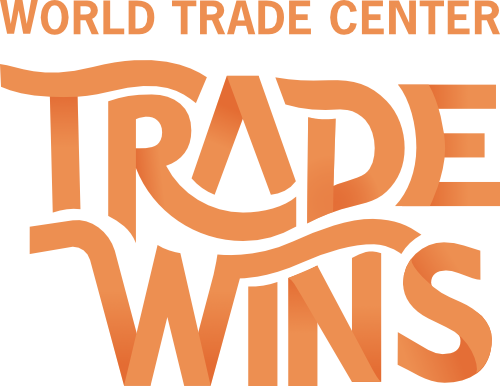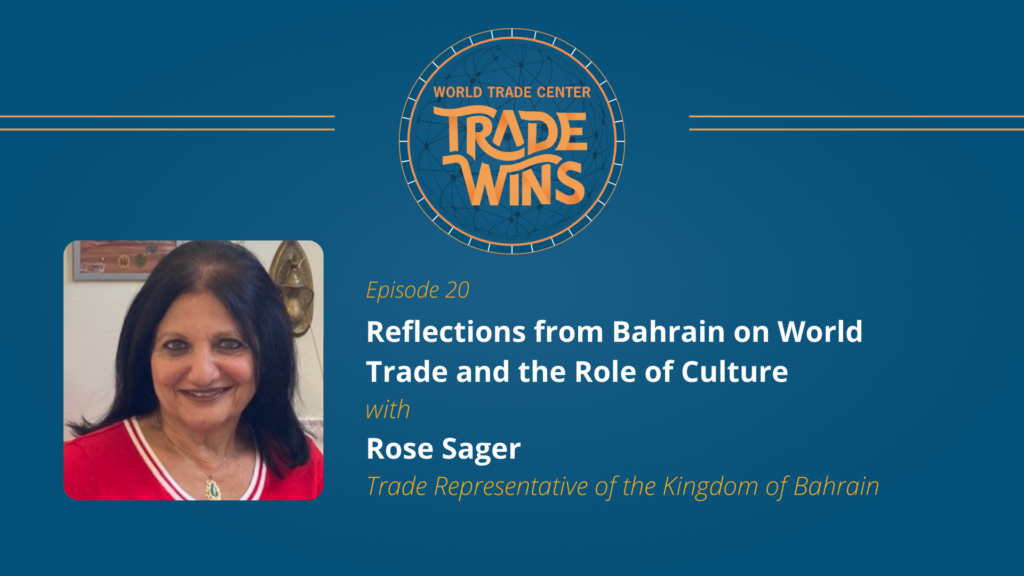Robin van Puyenbroeck 0:07
Welcome to Trade Wins. My name is Robin van Puyenbroeck, your host, and my guest today is Rose Sager, the Trade Representative of the Kingdom of Bahrain. Rose, welcome to the show.
Rose Sager 0:19
Thank you very much for having me.
Robin van Puyenbroeck 0:21
Yeah. So, my first question, of course, what would you like people to know about you?
Rose Sager 0:27
About me or about Bahrain?
Robin van Puyenbroeck 0:29
About you. About Rose Sager.
Rose Sager 0:32
I represent the Kingdom of Bahrain. I was born and raised there. I had the honor of growing up in a multicultural society, basically growing up in a utopia. I came to the U.S. for education and have been here since. I was very proud to be given the position of Trade Representative for Bahrain when the Free Trade Agreement was signed between the U.S. and Bahrain in 2006.
Robin van Puyenbroeck 1:04
Being a Trade Representative, what does that mean? What exactly is that?
Rose Sager 1:10
Initially, it was a lot of raising awareness and letting the people in the U.S, especially in this market, know about Bahrain and the Free Trade Agreement. Later, as people learned a little bit more about it and the advantages, I would go around and promote the country and discuss the advantages of doing business with Bahrain and using it as a springboard for that entire Gulf region, including the Middle East/North Africa regions.
Robin van Puyenbroeck 1:46
Right, it evolved over the years because I was going to ask, you’ve obviously been doing this for many years, and you just mentioned you came to the U.S. to study and then stuck around. Elaborate a bit on the Free Trade Agreement. Is that how you got involved? How did that work? How do you come from “you’re in school here” and then all of a sudden you’re the Trade Representative? How did it happen?
Rose Sager 2:11
Not exactly that way, no. I was living here and working. I’ve been here for a while, and worked in the financial industry and then the airlines. I used to go back to Bahrain very often. On one of my trips, I learned about this position and applied, and was very lucky to actually get the position. I was living in New York at the time and that is the business center so I really concentrated on New York, New Jersey, Connecticut – the whole tri-state area initially. As the role progressed and as time went on, I was traveling throughout the U.S. and really talking about Bahrain, not just the business end, but also the culture, the diversity, and freedoms we enjoy that a lot of people were not aware of, initially. Thankfully, through the years, the U.S. market is aware of Bahrain, it’s a U.S. ally, the Fifth Fleet is based there, we are the co-signers of the Abraham Accords so of course, our popularity has increased tremendously.
Robin van Puyenbroeck 3:27
Yes, and I have to say, I myself am from Belgium, it’s also a very small country, and what happens with smaller countries is that people in the world don’t necessarily know much about smaller countries. But, countries in the Gulf states are well-known. Tell me a bit about Bahrain. How’s Bahrain different from the other Gulf states? From an economical perspective but also you just mentioned enjoying freedoms and things like that. How is it culturally, economically different from the other Gulf states?
Rose Sager 3:59
Number one, Bahrain’s greatest asset is its people. A warm, welcoming attitude from each and every one really is not to be compared with anyplace else, in Bahrainis, encompass the whole country in different positions. So you will meet a Bahraini taxi driver, you’ll meet a Bahraini CEO and a sales rep and an ambassador and you’re going to meet Bahrainis wherever you go. And what differentiates us in many ways. One of them is religious freedom and tolerance. We are a diverse community. We have Muslim, Jewish, Hindu, Bahai, all coexisting for many, many years, and that’s how the society has grown. And the King Hamad Center preaches religious coexistence and that is something we’ve always enjoyed. It’s not something new because it’s fashionable. It has always been our policy. Plus, education was compulsory in Bahrain. It was one of the first places where it was compulsory, not just for males, but also for females. And that was from the early 1900s. We’re the first country to discover oil, also the first country to run out a little bit. We’ve managed. We’ve become the financial center since the ’70s and the leadership looked ahead from that time period to diversify our economy. The leadership realized that oil cannot be sustainable forever and they looked for ways from that time to diversify the economy.
Robin van Puyenbroeck 5:52
How diversified is the economy in Bahrain, also as compared to your neighbors? Most of them are very dependent on natural resources.
Rose Sager 6:02
We are diverse and then initially became a financial center for the Middle East. We have over 400 financial institutions on that little island. Our financial regulatory system is transparent up to par. And we also have an aluminum smelter plant. We are the third-largest exporter of aluminum in the world. And more recently, we’ve concentrated on fintech. And that industry really has grown exponentially in the last few years. So that diversification planning was already in place for many years and we just keep growing on that. We’re looking to make a medical health hub for the region in Bahrain also and with our COVID Task Force, I think we’ll be there.
Robin van Puyenbroeck 6:56
We’ll get to COVID in a minute. You mentioned fintech. That’s interesting. What is being created to attract the fintech industry? What’s unique about your approach?
Rose Sager 7:06
We have a FinTech Bay. We have created a whole section that’s under the part of the economic development board to concentrate on financial and IT and artificial intelligence. So, we are trying to attract more and more firms in that industry and trying to see if maybe, cryptocurrency or Bitcoin. That is our goal, to make this the fintech center.
Robin van Puyenbroeck 7:35
Is that based on the mining itself? Because the natural resources are cheap and abundantly available? Or is there a different regulatory infrastructure that you’re looking to create to attract those industries?
Rose Sager 7:45
We are looking to create an infrastructure. I don’t think mining is in the future plans. Even though our rates are competitive, I don’t think that is our main focus.
Robin van Puyenbroeck 7:58
I have no doubts about that. I was actually in Bahrain, probably about eight years ago, and I can only agree with your sense of hospitality and the warmth of the people there. It’s definitely a beautiful place.
From an investor perspective, looking at the Gulf states, and the Middle East in expansion, Bahrain is also part of the Gulf Cooperation Council. Can you elaborate a bit more on that GCC? Because that was alive and kicking years ago and it kind of went silent for a bit. Again, from a foreign investor perspective, you look, of course, at individual countries, but also at those economic collaborations that are happening within a region. So can you talk a bit more about the GCC and the role of Bahrain in that council?
Rose Sager 8:46
Yes, absolutely. Thank you for bringing that up. Bahrain is part of the Gulf Cooperation Council, which is Kuwait, Qatar, Oman, United Arab Emirates, Saudi Arabia and Bahrain. Because we signed a free trade agreement — we were the first ones to sign the U.S, Oman being the second – for the investors coming from the U.S, the great advantage of setting up a branch in Bahrain would be that it gives them access to the whole GCC market. So you have access to six countries, utilizing the Free Trade Agreement advantages, as long as you have a base in Bahrain. So we call this the red carpet treatment, no red tape because you can do business with all the other five countries easily and smoothly without additional visas and invitations or any other red tape because you would be considered a Bahraini entity, and Bahrain is part of GCC, so you are technically treated as a Bahraini entity and utilizing the advantages of the Free Trade Agreement’s taxes and intellectual property, which is a truly important portion, especially these days. Because everyone speaks English, English is the language for business, it just makes life a lot easier for the investors coming in. And they can own their own company 100%. There’s no local partner required. That’s another differential point from other countries. So you come in and you just open up a branch office or a subsidiary and you are considered Bahrainian.
Robin van Puyenbroeck 10:41
This week, I believe Dubai announced that they’re going to introduce a corporate tax to create a more sustainable tax basis. How does it work in Bahrain from a taxation perspective and, going back to the GCC where you have that integration, is that going to create an imbalance there where some areas are going to start a different taxation level than others? How do you see that?
Rose Sager 11:05
We don’t have corporate personal or withholding taxes and no taxes on capital gains, no restrictions on repatriation of capital or profits, but we do have a VAT tax. That was introduced late last year. Right now, this is all we have, and we hope that it stays stable and the economy improves, where we do not need to introduce corporate taxation. We’re also very cost competitive to our neighboring countries, not just in the cost of doing business, but also in office space, housing, electricity, utilities, and recreation.
Robin van Puyenbroeck 11:50
So if someone wants to go to Bahrain and invest, what would be the number one reason for going? And I’m going to challenge you: what would be the one reason for not going?
Rose Sager 12:00
The number one reason for going is the tax incentives, protection of intellectual property, and cost-effectiveness. But of course, I’m also going to bring up the people, the warmth of the people.
Robin van Puyenbroeck 12:13
Of course, that’s a given.
Rose Sager 12:14
Yes, that’s always number one. Why not go? Maybe if you cannot stand the August heat. That’s the only reason I could come up with. Although, it’s not a bad reason.
Robin van Puyenbroeck 12:29
Fair enough, fair enough. How is the — yeah, we can’t avoid it, right? The COVID situation, how has that played out in Bahrain?
Rose Sager 12:39
As soon as the COVID pandemic began, there was tracing done almost immediately. His Majesty and the Crown Prince took great efforts in combating this immediately. They created a COVID task force, which has been on top of getting vaccines, getting the studies made, doing the tracing. We’ve been on top of it and Bahrain last year ranked number one in vaccinating the population. When I say the population, I don’t mean just Bahrainis, I mean everyone that was in Bahrain. We never had a total shutdown, but we’ve had restrictions like everywhere else, but we’ve been on top of it. Statistically, we’re fighting it. Sadly, there were a few losses there, but most of the time they’ve been on top of it. Percentage-wise, our vaccinated population is up there in the top three.
Robin van Puyenbroeck 13:42
Wow. Are there travel restrictions now? Or do you need a vaccination pass to go into restaurants? I’m just thinking it’s different in every country. How is it in Bahrain?
Rose Sager 13:55
It’s been changing every month, but as of now, we just have the regular quarantine period. You need a negative PCR test. You need another one to three days after arrival and then another one after 10 days.
Robin van Puyenbroeck 14:09
Yeah, but the economy is open, the country is open.
Rose Sager 14:13
Yes, it is.
Robin van Puyenbroeck 14:16
When you go around in the U.S. and you meet people, how do you introduce yourself and Bahrain? How do you start that conversation to let’s say, people who don’t really know Bahrain?
Rose Sager 14:29
I just did that actually, this week someplace because I think out of the 30 attendees, 20 did not know about it, and that’s okay. I do start by saying, “I represent the Kingdom of Bahrain with a lot of pride and love,” and I start talking about the location. It’s really a small island. It’s a hidden gem off the coast of Saudi Arabia and connected to Saudi Arabia by a beautiful causeway, 16 miles long. It’s a very open, tolerant country and diverse and women have enjoyed their rights. Women can do any type of work they wish, they dress as they wish, they vote, they run for office. It’s a constitutional monarchy, a U.S. ally, and the Fifth Fleet is based there. I would say 99.9% of the population speaks English, so it’s a very welcoming country. There is a lot of culture, a lot of business advantages, but a lot for tourists to enjoy. It’s the first underwater sea attraction. There is a 747 but under the sea now for diving expeditions. When you go diving in Bahrain, you can dive for pearls, which were always in demand by Cartier jewelers from the early 1900s who used to comethere. The literal translation of Bahrain is “two seas,” so you actually see the sweetwater springs in the bottom of the ocean floor of the salty ocean. That’s fascinating and that’s what makes good pearls and good seafood.
Robin van Puyenbroeck 16:17
Do you always wear beautiful pearls when you go out for those meetings?
Rose Sager 16:23
I do, actually.
Robin van Puyenbroeck 16:26
No, but on a more serious note, you mentioned Bahrain is a constitutional monarchy. I’m just thinking of the different systems in the region. You mentioned there are elections, there’s parliament in Bahrain. How does it impact your relationship with your neighbors? Because it’s sort of a bit of a different system, if you like, then in the rest of the neighborhoods in the region.
Rose Sager 16:51
It’s a different system, but we all get along. It’s like one big family. We have a bilateral chamber, we have an appointed house. They’re appointed by the king, and we have an elective office where anyone can run for office. In the appointed Shura Council, the king makes sure that every religion is represented and every sector is represented, so we have a Christian representative, we have Shia, Sunni, Jewish and that’s always been the case since its inception in 2001.
Robin van Puyenbroeck 17:29
How do you view the security situation? Especially recently, drone attacks not only in Saudi but also closer in Abu Dhabi. Where is Bahrain positioned? Is that a concern that people have? Or is it too far from their daily lives? Or how do people in Bahrain look at sort of those events?
Rose Sager 17:53
It is absolutely a concern for the whole Gulf countries, all that region. Yes, it is a concern. We have our joint efforts with the other countries in the Gulf. I guess that’s all I can say about it. We have maritime assistance, and we have the U.S., but we have joined forces and we support one another, the Gulf countries.
Robin van Puyenbroeck 18:21
Of course, of course. You’ve been here, of course for many years, so I’m just curious, anecdotal, how many times have you traveled back and forth to Bahrain and all those years? You must be a very frequent traveler.
Rose Sager 18:36
No. Well, when my parents were alive, yes. I went twice a year minimum. After that, sadly, I was only going once a year and then through work in the U.S, our vacation time at that time was only two weeks.
Robin van Puyenbroeck 18:53
Yeah. How much vacation time do people have in Bahrain?
Rose Sager 19:00
An average of once a year. It has increased in the recent past, but for a while, it was just once a year.
Robin van Puyenbroeck 19:07
How — I’m just always, again, curious. How have you experienced things differently because if you leave your country, you go live somewhere else, you start looking also experiencing your homelands differently if you travel once a year, twice a year, and then years go by. How have you seen things evolve and change, and how has your perspective changed both in Bahrain but also in the U.S., living here but still being Bahraini, having those strong ties. What has changed in let’s say in those 10, 15 years that you can think of?
Rose Sager 19:41
The people have not changed. They’re still as warm and welcoming and friendly as always. It’s the country itself. Mashallah it has boomed. I don’t recognize it. I cannot believe we have such a gorgeous, absolutely magnificent skyline. It’s beautiful. That, to me, is the number one change. Of course, all our roads and buildings, I actually get lost driving there, which I never thought would happen on a small island. A lot of reclaimed land. Yes, the country has grown quite a bit, but the core, the people, are always still the same.
Robin van Puyenbroeck 20:21
There is also an absolutely beautiful state-of-the-art World Trade Center in Bahrain. Maybe next time, together we should go and pay a visit to that very iconic building there. Have you been?
Rose Sager 20:37
It is iconic. It is one of the first buildings in the Middle East that is green conscious because we have the three fans that power 20% of the energy used for the buildings. It is truly a magnificent sight.
Robin van Puyenbroeck 20:53
You said in Bahrain, a lot of things changed: the skyline and getting lost in the many new roads. But, how has the U.S. changed?
Rose Sager 21:04
Well, let me go back to Bahrain one more time. Of course, the culture and the history, and the decision to maintain the old culture has been really remarkable in that it’s being preserved. It’s being respected and it’s checked on. You know, it’s, it’s preserved. So that is one thing we’re very proud of, even though we have a lot of the modern andnew buildings and all that but we’re maintaining the core. And a good example is the Old Souk, the old minarets and the revival of a town called Muharraq with all their arts and the older structures and architecture. For the U.S. the changes here, wow. Many changes, internet. So you know, it’s changed quite a bit. Hopefully the whole world is changing for the better with our new technology. You have to look at it positively.
Robin van Puyenbroeck 22:09
What is the biggest change in the United States?
Rose Sager 22:12
I guess the internet has really turned this country around quite a bit. I feel, unfortunately, in the last few years we’re polarized and that’s not something to be proud of. I think that’s the main change. Our technology is fantastic, but I think I see a movement now where more and more people are looking into their lives and saying, “You know what? It’s time to really look at what’s important.” I see a return to family values and appreciation of everyday simple things.
Robin van Puyenbroeck 22:50
Very interesting that you mentioned the internet, which is a sort of technology. Five years ago, six years ago, that technology was only seen as a force of good actually, but technology has also been used for maybe not so great endeavors. I’m saying this because of your reflection that people now seem to be rethinking a little bit the role of technology in their daily lives and it has been extremely bizarre during the days of COVID because without the technology, we wouldn’t have been able to work from home the way we did. Would you like to elaborate a bit more on that idea of technology as a force of good? You could also look at — you don’t have to go into detail with any particular company but more as a principle that technology has become so omnipresent in our lives and has gone in all different directions and some of the things we thought would happen through technology turned out completely the other way. Do you see and feel that we need to rethink how we use technology in our daily lives? Because there’s no privacy anymore either. It’s all out on the street. What’s your reflection on that?
Rose Sager 24:08
Personally, I think technology has overrun our lives, of course. I feel like we’re working 24/7 whereas before you would go to work, finish your day and go home and not have to worry about emails and last minute this, and midnight calls. Now, yes, it does make our lives easier, but I feel like we’re all working 24/7, that there’s no life-work balance. I think it’s up to us individually to say we need to stop and shut off technology for a little while. Sometimes the old simple life has a lot to go for it.
Although, another advantage is – you could not have met this many people and connected with this many individuals and industries had it not been for technology. Yes, COVID forced us and I’ve met many, many great connections, one of them being a World Trade Center founder because of a Zoom call or all these online meetings. There is a silver lining in everything, of course, so I’ll say basically, I think each of us needs to look at life-work balance.
Robin van Puyenbroeck 25:28
I think these are wise words, Rose. So we’re good. Well, thank you. I mean, before wrapping up the show, I always like to ask my guests to share something they have not shared before. It could be something personal, anecdotal, something work/business related, something interesting that you’re like, “I’ve never really shared this before, but now is a good time.”
Rose Sager 25:56
You put me on the spot. Well, you know what, I’ll bring up something that I just referenced. I was on a Zoom call last year in the middle of COVID. I really was zoomed out at certain points because I think it’s more exhausting than running around in-person and having meetings. But I was on that Zoom call and I met one of the people that was on the call (when we went around introducing ourselves) was a World Trade Center founder in Florida. In my head, I said, my goodness, I have to really get in touch with this person. So the next day when we all shared our emails, I sent this person an email and he sent one right back at the same time. So if you look at our emails, they crossed in cyberspace-
Robin van Puyenbroeck 26:48
That’s called telepathy right?
Rose Sager 26:50
Yes! From that, we have built a much bigger relationship and we created a trade mission. Even in the middle of COVID days and restrictions, we created a bond that has become not just business-related, but also a friendship. And I think that’s going to do a lot of good on both sides, the U.S. side and the Bahraini side.
Robin van Puyenbroeck 27:15
Well, I think that is a beautiful message to end on the note of friendship, Rose. Thank you so much, Rose Sager, trade representative of the Kingdom of Bahrain. Thank you.
Rose Sager 27:26
Thank you very much for having me.
Robin van Puyenbroeck 27:29
If you have any ideas for future episodes, know someone who would be an inspiring guest, or just want to stay apprised of our show, please make sure to connect with our team via email at podcast@wtca.org. Be sure to head over to podcast.wtca.org and subscribe to the show. We will see you soon.






